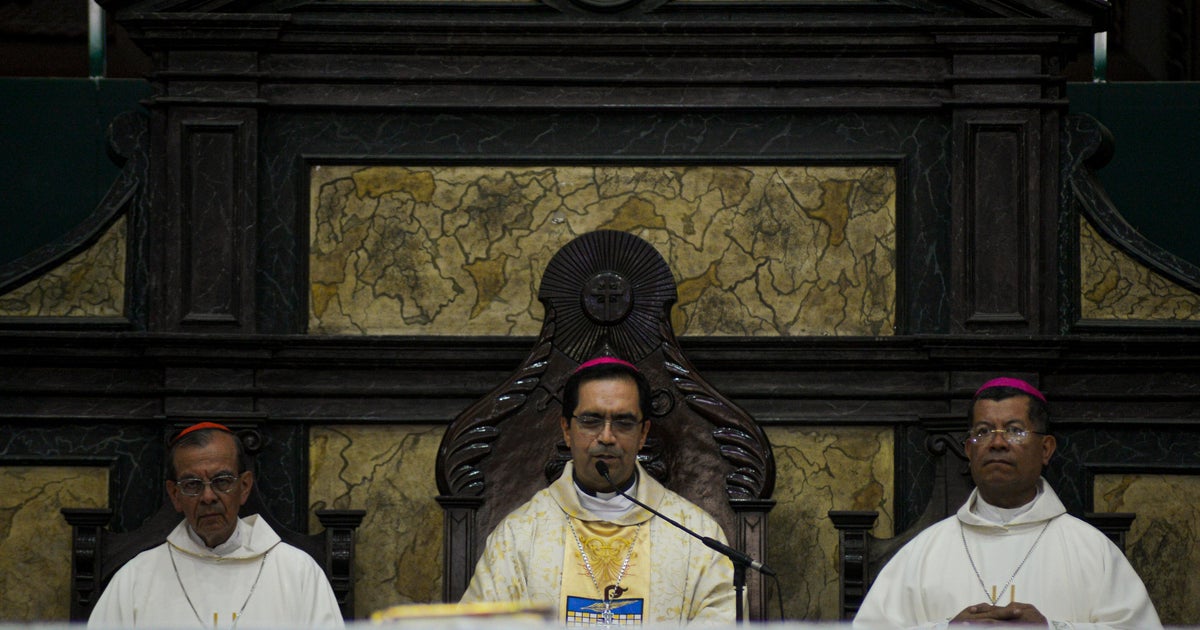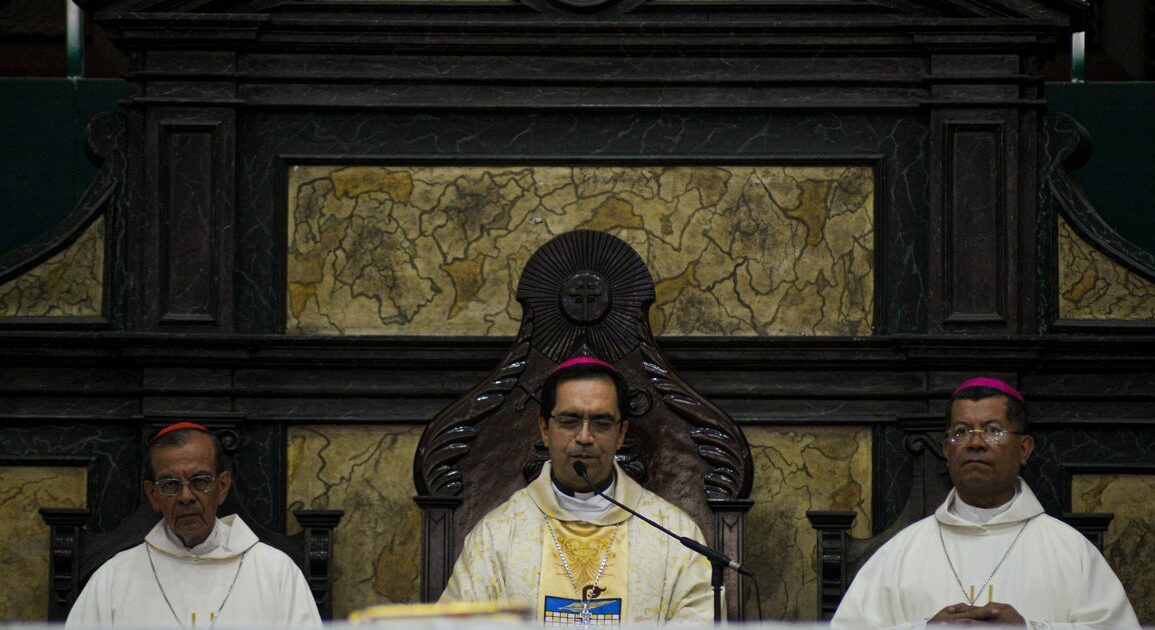
El Salvador’s top Catholic leader on Sunday urged President Nayib Bukele not to turn the country into a Guantanamo-style U.S. prison, after Bukele made a deal with Washington to house deported migrants from the United States in a notorious jail.
“We ask that our authorities not allow our country to become a big international prison,” Jose Luis Escobar, the archbishop of San Salvador, told reporters on Easter Sunday.
Bukele’s visit Monday to the White House confirmed his growing alliance with like-minded President Trump.
The Salvadoran leader has agreed to imprison hundreds of migrants, many of them Venezuelans, expelled by the United States. They are being held in an enormous mega-prison where rights groups have decried conditions as inhumane.
Escobar mentioned recent opinion articles warning that “El Salvador could become a new Guantanamo” — the sprawling Cuban territory leased by the United States to serve as a naval base.
In recent decades it has seen use by Washington as a prison for detainees accused of terrorism but held without trial and for expelled migrants. Several of those expelled to El Salvador were first jailed in Guantanamo.
While the Trump administration has highlighted transfers of dangerous criminals and suspected gang members to Guantanamo Bay, it is also sending nonviolent, “low-risk” migrant detainees who lack serious criminal records or any at all, according to two U.S. officials and internal government documents. Last week, CBS News obtained a government memo showing the Trump administration created broad rules outlining which migrants can be held at Guantanamo Bay, allowing officials to send non-criminal detainees there despite a vow to hold “the worst” offenders at the naval base.
Bukele has said he is eager to help with Mr. Trump’s effort to drastically reduce the number of undocumented migrants in the United States. But Escobar warned that El Salvador “could become a prison where the United States could send prisoners at a lower cost than what they spend in Guantanamo.”
“We ask the government not to allow it,” he added.
One of the migrants being held in El Salvador, Kilmar Abrego Garcia — a 29-year-old Salvadoran national who lived in Maryland and is married to a U.S. citizen — was sent last month to its notorious CECOT prison, although the administration later admitted in court that Abrego Garcia was mistakenly among those deported.
Maryland Sen. Chris Van Hollen said on CBS News’ “Face the Nation with Margaret Brennan” on Sunday that El Salvador “tried really hard” to prevent him from seeing Abrego Garcia when he went to El Salvador, before the government reversed course late last week.
Van Hollen previously noted at a news conferences in El Salvador that the government was “violating international law by not allowing anyone to reach him,” adding that “they realized that was a bad look.”
The deportations came as Mr. Trump invoked the little-known Alien Enemies Act of 1798, previously used only in times of war, as he moves to expel people he alleges are mostly violent criminals.
Families and lawyers of many of those expelled under the crackdown dispute that characterization, with some saying their family members were targeted largely on the basis of their tattoos.
The Trump administration’s is facing ongoing legal challenges, with the Supreme Court on Saturday temporarily blocking the deportations of any Venezuelans held in northern Texas. Federal judges in Colorado, New York and southern Texas have also issued orders barring the removal of detainees under the Alien Enemies Act until the administration provides a process for them to make claims in court.
This post was originally published on this site be sure to check out more of their content.









